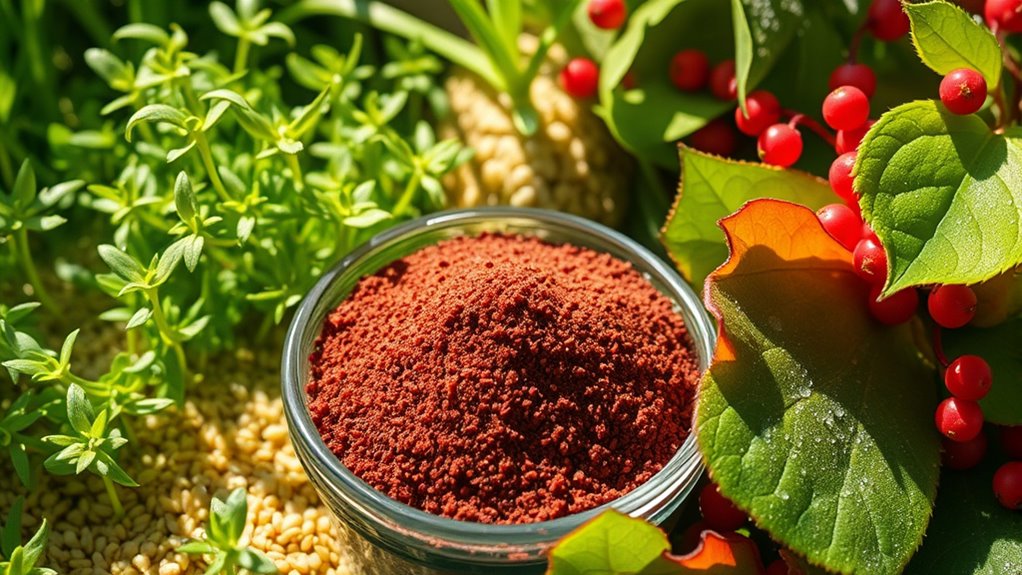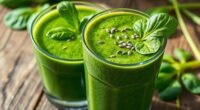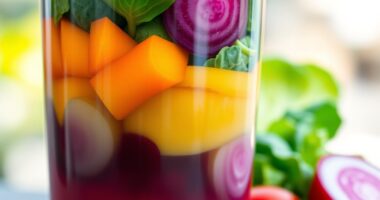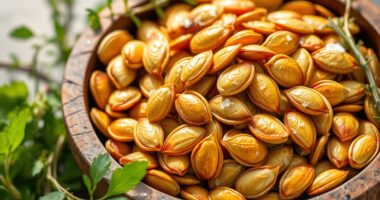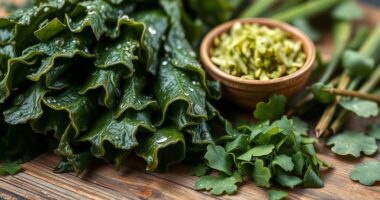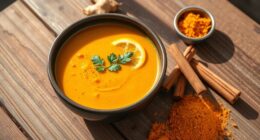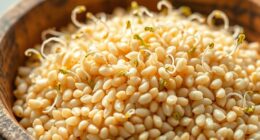Surprising plant sources of complete protein you might be ignoring include quinoa, hemp seeds, chia seeds, and soy products like tofu and tempeh. These foods contain all nine essential amino acids, making them excellent alternatives to animal proteins. Many people overlook these options in their diets, but incorporating them can help you meet your protein needs naturally. If you keep exploring, you’ll discover even more plant-based sources that support a balanced, vegan-friendly diet.
Key Takeaways
- Quinoa and hemp seeds are complete plant proteins often overlooked outside traditional grains and seeds.
- Chia seeds offer a surprising source of all essential amino acids, making them a versatile protein boost.
- Soy products like tempeh and edamame are rich in complete proteins, yet frequently underappreciated in plant-based diets.
- Certain grains like amaranth and buckwheat provide full amino acid profiles, despite being less common.
- Vegan protein blends combining various plant sources can reveal unexpected, comprehensive protein options.
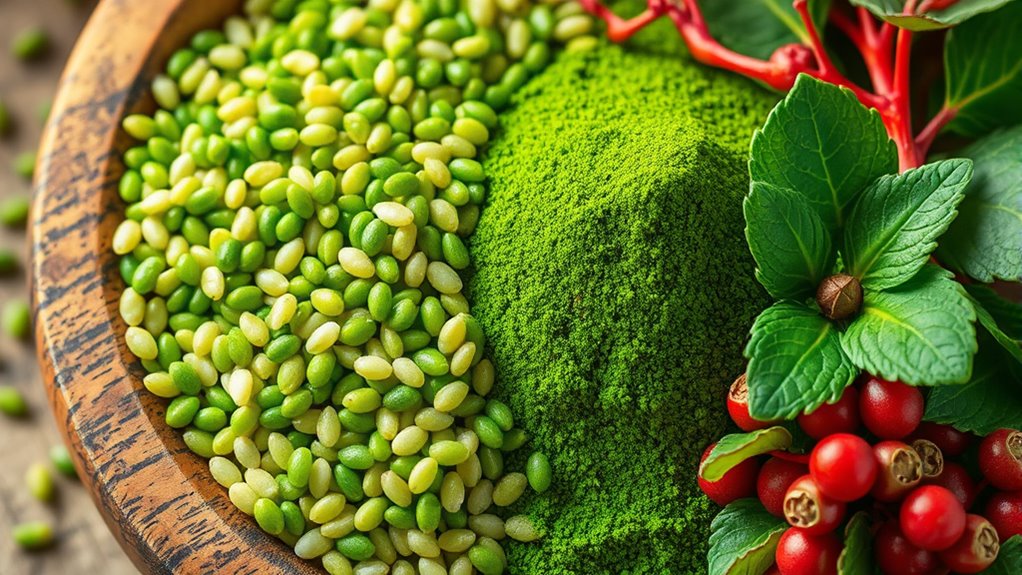
Many plant sources naturally contain complete proteins, even if they’re not as obvious as animal products. For example, quinoa is a complete protein, packed with all nine essential amino acids. Chia seeds, hemp seeds, and soy products like tofu and tempeh are also rich in plant based amino acids, providing a solid foundation for a balanced diet. Incorporating these into your meals ensures you’re getting the full spectrum of amino acids without needing to resort to supplements or complicated combinations. Additionally, many grains and legumes can be paired to form complete proteins—think rice and beans or lentils with whole wheat bread—that together provide all necessary amino acids. Understanding amino acids helps clarify how plant foods work together for optimal nutrition. However, if you prefer more convenience, vegan protein blends are a smart choice. These products combine various plant proteins, such as pea, rice, or pumpkin seed proteins, into one supplement that delivers a complete amino acid profile. Using vegan protein blends not only simplifies your meal planning but also guarantees you’re covering all your bases. They’re especially useful if you’re active or need more protein in your diet but want to stick to plant-based options. When choosing these blends, read labels carefully to ensure they include a diverse mix of plant proteins for comprehensive amino acid coverage. It’s important to recognize that many plant foods, when eaten in variety and quantity, can easily meet your protein needs. You don’t have to rely solely on animal sources to get complete protein. By incorporating foods like quinoa, buckwheat, soy, and a range of seeds and nuts, you can create a diet that’s both nutritious and satisfying. Plus, mixing and matching different plant sources throughout the day ensures you’re consuming all the essential amino acids naturally. Whether through whole foods or vegan protein blends, you can confidently enjoy a plant-based diet that supports your health and fitness goals without sacrificing protein quality.
Frequently Asked Questions
Can I Get Enough Protein From Plant Sources Alone?
Yes, you can get enough protein from plant sources alone. Many people believe plant protein myths that it’s hard to meet your needs, but with well-planned vegan protein sources, it’s totally doable. Incorporate a variety of foods like beans, lentils, quinoa, and soy to guarantee you get all essential amino acids. So, don’t let misconceptions hold you back—plant-based diets can provide all the protein your body needs.
Are Plant-Based Complete Proteins Suitable for Athletes?
You might wonder if plant-based complete proteins support athletic performance, and the answer is yes. Plant protein myths suggest they’re inferior, but many sources like quinoa and soy provide all essential amino acids. As an athlete, you can meet your protein needs from plants, enhancing recovery and strength. Just guarantee a varied intake, and you’ll see plant proteins can be just as effective for supporting your athletic goals.
How Do Plant Proteins Compare to Animal Proteins?
Think of plant proteins as a colorful tapestry, full of variety and surprises. While plant protein myths suggest they’re incomplete, many plant sources offer diverse amino acids, making them comparable to animal proteins. You can get complete protein from a variety of plant sources, unlike the misconception that animal proteins are superior. Embracing plant source diversity not only supports health but also challenges the idea that animal proteins are the only complete option.
Do Plant-Based Complete Proteins Contain All Essential Amino Acids?
Many believe plant-based complete proteins lack all essential amino acids, but that’s a myth busting misconception. When you eat a variety of plant foods, nutrient synergy guarantees you get all essential amino acids your body needs. Some plant sources, like quinoa and soy, naturally contain complete proteins. So, yes, plant-based complete proteins do contain all essential amino acids, especially when you combine different plant foods thoughtfully.
How Can I Incorporate More Plant-Based Complete Proteins Into My Diet?
To incorporate more plant-based complete proteins into your diet, focus on diverse vegan protein sources like quinoa, soy, and buckwheat. Mix these in your meals through simple plant protein recipes, such as tofu stir-fries or quinoa salads. You can also combine different vegan protein sources throughout the day to guarantee you get all essential amino acids. Keep experimenting, and you’ll easily boost your intake of complete plant proteins.
Conclusion
Don’t dismiss these diverse, delightful plant sources of complete protein. By embracing beans, quinoa, soy, and spirulina, you diversify your diet and boost your health. Remember, variety fuels vitality, and exploring these overlooked options opens doors to a more balanced, plant-powered lifestyle. So, seize the chance to supplement, strengthen, and sustain your sustenance with these surprising, satisfying sources of complete protein—proving plant power can truly pack a punch!

